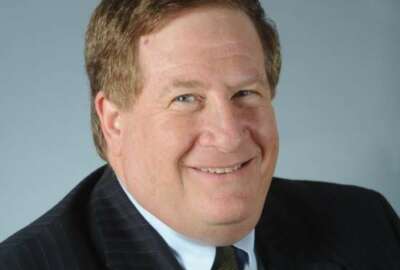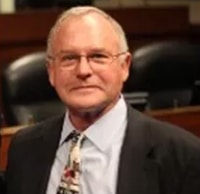
Helping contractors through coronavirus uncertainty
Federal contractors must now navigate a twisting path to getting obligated work done while protecting their workforces
Best listening experience is on Chrome, Firefox or Safari. Subscribe to Federal Drive’s daily audio interviews on Apple Podcasts or PodcastOne.
During the pandemic, what you though was a sure thing is likely to change overnight. That’s true for federal contractors, who must navigate a twisting path to getting obligated work done while protecting their workforces. Now comes the Defense Production Act declaration. Joining Federal Drive with Tom Temin with a summary of the situation this week, Reed Smith law firm partner Holly Roth.
Interview transcript:
Tom Temin: Good to have you on.
Holly Roth: Thank you.
Tom Temin: And you’ve done a lot of advisory to federal contractor clients on this whole issue of the DPA, the Defense Production Act. And I think there’s still a lot of confusion over what it is and what it does, and what it is not and what it does not. Give us your best understanding and what it means for contractors.
Holly Roth: What it means to contractors. It’s been in existence for a long time, and the DoD has used it over the years to acquire certain types of technology or encourage the production of certain types of technology. And after the aftermath in Puerto Rico of the hurricane, once again, the DoD issued orders to companies where certain supplies were urgently needed and those companies would get these orders and they would call me up and say, what does this mean? And I would say to them, it means you now have to assess your production lines. You now have to decide which commercial orders you have to rearrange so that you can meet the government’s delivery date. And also it means that if you can’t do it, you need to reach out to the government and ask for their assistance in redoing certain aspects of your manufacturing process. If we’re talking about a manufacturing process.
Tom Temin: So services contractors and people that do the bulk of the dollars really in government contracting, aside from the acquisition of fuel and automobiles. This doesn’t affect a huge number of contractors, does it?
Holly Roth: In the services part, unless you’re working on a classified contract and you’re thinking about whether you have to work in a skiff or not. And then somebody tells you you have to work in a skiff because you can’t even reasonably work remotely. But in the time of COVID-19 all of those present challenges, because who wants to work in a room with somebody who might be ill. I think you’re assessment is right.
Tom Temin: And with respect to developing new technologies and so forth, can I guess, under the DPA, can the government have more flexibility in using other transaction authorities? OTA dollars or strategies in what it is they need to acquire?
Holly Roth: So I don’t think that the DPA covers OTAs, and this is not a question, that I would say, that’s not a question that I’ve been asked before because the DPA generally is for a contract or an order that the government gives to a company to acquire products and or services at that companies standard commercial price. The company doesn’t have the ability to raise its price to sell those product to restore service to the government. But certainly that company has the ability to lower its price and provide a better price if that’s possible. And you know, certainly there are research and development orders that the government can issue, and they can direct companies to do research and development on a particular aspect and throw the full force of the weight of the government against it. And so in the health care industry, certainly they could issue a rated order to a health care company that that does research and development and ask them to work on something to help reduce the spread of COVID-19.
Tom Temin: Got it. And on the manufacturing side, we heard about General Motors. You know, saying it’s going to make ventilators and respirators. How do companies that really don’t do anything related in the first place but have general manufacturing capabilities, they can bend metal and paint it, and they know how to make electronics, and they know how to make plastic parts. Those are all the things that go into ventilators. What’s involved there under the DPA? How far afield from its core business can a company go?
Holly Roth: I think there is an ability for a company to come back and say we don’t make it and don’t have the wherewithal to make it. And then there’s a negotiation with the contracting officer about whether they can or cannot do it. But at the end of the day, under the DPA, it’s the government’s discretion to say we think you can do it. And the other consideration that people have to think about with the DPA. And I’ll use the General Motors example, is that General Motors, who received the rated order, now has the authority to issue rated orders to all of its suppliers, and all of those suppliers half to conform with the instruction that General Motors gives them in the production of the various components that need to go into the respirators or ventilators.
Tom Temin: I guess if Ford Motor Company could make B-24 bombers and World War II, General Motors can make ventilators in the war on coronavirus. And let’s talk about the opportunities for fraud that always come up in these types of situations, and also the danger that inadvertent fraud could occur from a contractor just in all of the different pricing intricacies and so one that have to do with emergency procurement.
Holly Roth: That’s something that we’ve been talking about a lot in our firm. About some people have come to me and said, I’m a commercial company and I’m now gonna change over and make something that’s necessary to help prevent the spread of COVID-19. And I will go through and say OK, where do your components come from? Because when the government issues an order, and I’m not even going to fraud, right, it’s just plain blank of knowledge of how government contracting works and the fact that when you get an order from the government or contracts in the government, those standard government contract terms like complying with the trade agreements up or complying by America, or all of the labor and employment requirements that are normally in a government contract, are going to suddenly be in your contract that you’ve never seen before, and you now have to comply or potentially face some allegation that you have violated the False Claims Act. But certainly fraud is a concern. And I will say that, this weekend I’ve spent a good portion of my time looking over the CARES Act, which is providing that stimulus funding into small businesses to help them meet payroll. And the questions that we have been fielding about well can I do this, or can I do that? And you just see that somebody out there is going to say, free money from the government, how can I get it? What can I do to say that I have something that will help in this whole environment? You know what that the government might need, and they will make you know, misstatements and you’ll believe them and you buy it, and they won’t have the product that they’re trying to sell. But they’ve gotten the money, much like in Hurricane Katrina, when there was a tremendous amount of fraud that occurred in response to Hurricane Katrina in the government’s efforts to get the South up and running again. This is just where people come in and try to take advantage. And it’s a really sad thing.
Tom Temin: And also in the recent CARES Act, the stimulus bill, whatever you wanna call it, there are lots of requirements unrelated to emergency supply or emergency finances that are buried in there with respect to corporate governance and the diversity composition of boards and reports there too that companies may not be aware of what they’re really signing onto if they take the money.
Holly Roth: Right. There is some some language in there as well that says that if you have a collective bargaining agreement, you have to remain neutral with respect to collective bargaining. And so the questions are coming back, they’re saying do I have to let a union in? You have to stay neutral. It’s not a simple act, and it’s all in interlineated with references to other requirements and other regulations and other statutes. And it’s been really hard time picking our way through it to say, how does this help? And how can we help somebody who’s in distress and really could use the funds?
Tom Temin: So it sounds like this is a really good time to make sure your compliance officers or your compliance council is up to date in online.
Holly Roth: Yes, if you happen to be a large enough business to have them.
Tom Temin: Otherwise they can hire people like you.
Holly Roth: Yes, exactly.
Tom Temin: Holly Roth is a partner at the law firm Reed Smith. Thanks so much for joining me.
Holly Roth: Thank you Tom.
Copyright © 2025 Federal News Network. All rights reserved. This website is not intended for users located within the European Economic Area.




